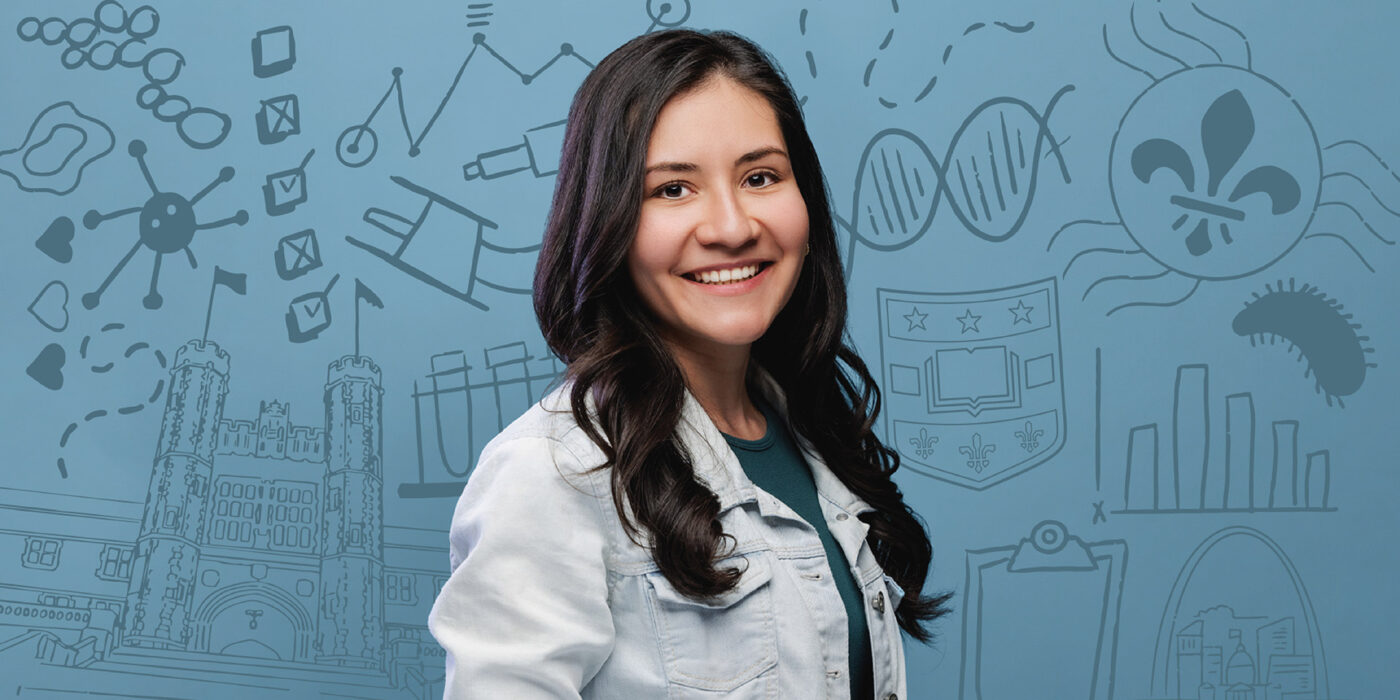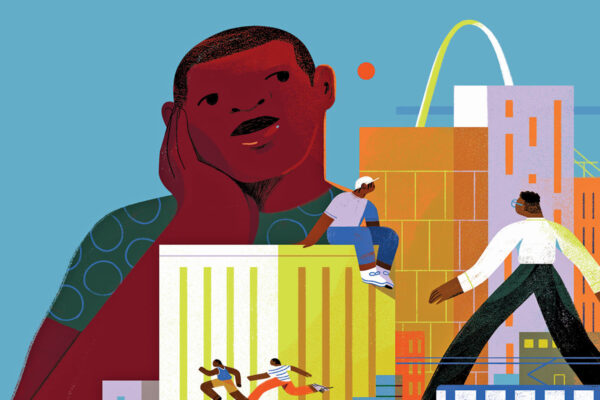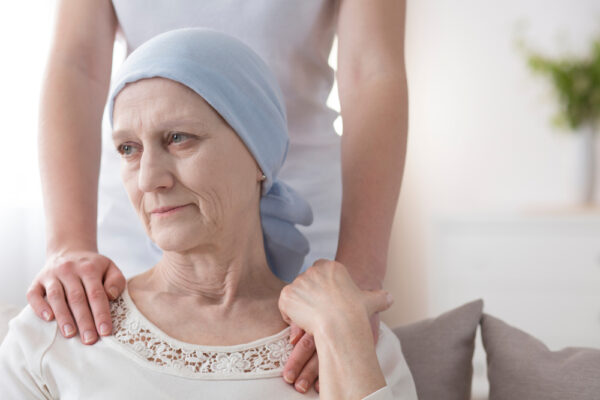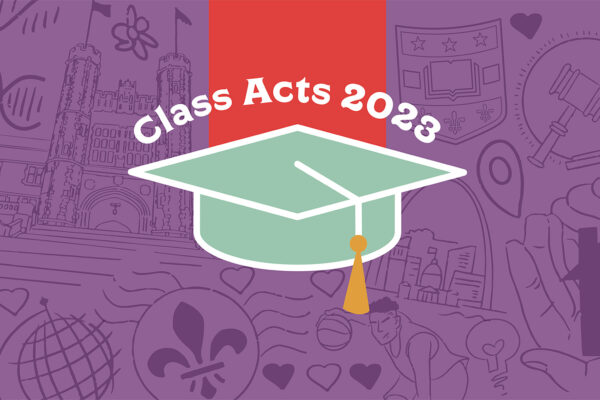Andrea Heredia is preparing to graduate in May from the Brown School at Washington University in St. Louis with a master’s degree in public health, specializing in epidemiology and biostatistics. She is interested in the determinants of health.
Heredia, who was born in Santa Cruz, Bolivia, is looking to further develop the quantitative data analysis skills she obtained during her time at the Brown School. After graduation, she will be working as a statistical data analyst in the Division of Infectious Diseases at Washington University School of Medicine in St. Louis in the lab of Maria Cristina Vazquez Guillamet, MD, an associate professor of medicine.
“I obtained my bachelor’s degree in applied biology, so I’ve always been drawn to the biological sciences and research,” she said. “However, nothing can be proved without evidence, without some sort of certainty, and that’s where math and statistics come in. Statistical analysis applied to public health, and health care in general, can help us understand disease etiology and development, and how these are affected by different prevention and control strategies.”
At the Brown School, Heredia has been involved as a graduate research assistant with the school’s Race and Opportunity Lab, directed by Sean Joe, the Benjamin E. Youngdahl Professor of Social Development.
What kind of work have you been doing with the Race and Opportunity Lab?
The lab has given me the chance to learn more about the history of St. Louis, while also being involved in the local community. Most of the research I have done with the lab focuses on analyzing suicidality in the African American population. More specifically, I have been researching the link between suicidal ideation and attempt. In fact, the lab has recently been approved for three new research studies, two of which are already in the process of recruitment.
What have you enjoyed about your time at the Brown School?
My favorite part of WashU has been the connections I got to make while in school, both with other students in my program, as well as professors. In the two years of the master’s of public health program, I’ve met people from different backgrounds with an incredible passion for service, whether that’s in the field of public health, social policy or social work.
What do you love about St. Louis?
St. Louis has high-quality health care, a rich culture and the cost of living is affordable. I think this is a city with great potential and opportunities for young professionals, not only for those working in the STEM field, but also those in the social sciences.
My top three things do to in the city would be going to Forest Park; grabbing coffee at Meshuggah; and having drinks with friends at VinoSTL or Urban Chestnut. One of the things I’ve been wanting to do, but haven’t gotten the chance yet, is going to see one of the St. Louis City SC matches.



